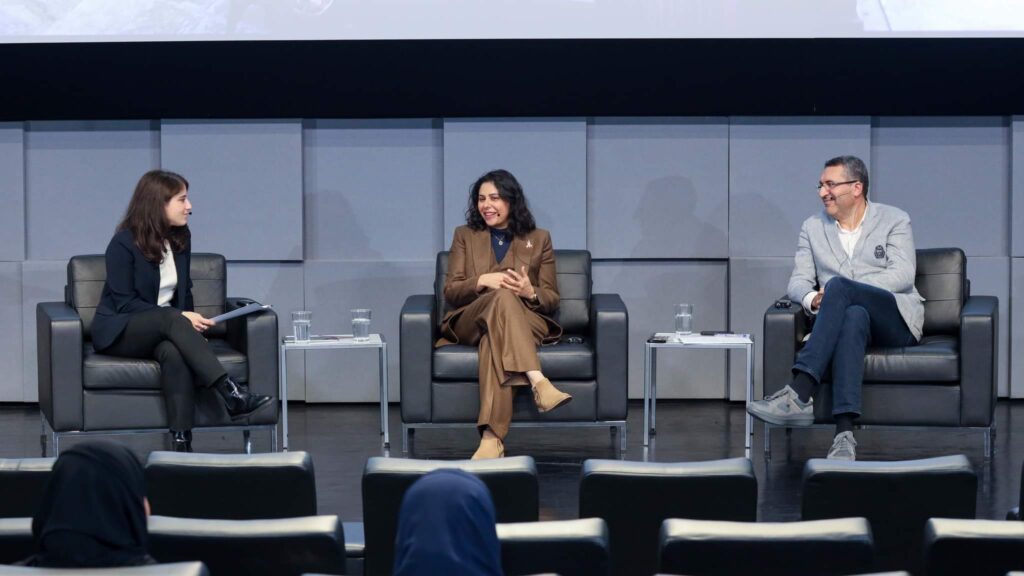Media Majlis panel examines evolution of Musalsalat

Drama and comparative literature scholars Shahd Alshammari and Firat Oruc unpacked current and future trends in the business of serialized Arab television dramas (musalsalat) at The Media Majlis’ latest panel discussion, All About Musalsalat, moderated by Northwestern Qatar Professor Heather Jaber
Alshammari, assistant professor at Gulf University for Science and Technology, began by tracing the genealogy of serialized television dramas in Kuwait and explaining how the theater industry has impacted the evolution of musalsalat in its contemporary form. “With the broadcasting of Kuwaiti television happening around 1961, theater directors and producers started looking at how they could transfer the theater to television,” said Alshammari. “They [directors and producers] started with sketches, which were meant to be very quick and barely a plot, then began to be plot-oriented and theatrical, and later on transformed to the concept of musalsalat.”
Oruc, associate professor at Georgetown University in Qatar, added that radio shows also played a role in the evolution of how musalsalsat stories were told, noting: “Pretty much all national media culture in Turkey, Egypt, Syria, and Iraq start making use of the serial form [in the 1950s], first on radio and then, with the arrival of television, these got imported to the television medium.” He highlighted how the plots of musalsalat, in their earlier years, were heavily influenced by localized narratives, sequential styles of Western novels, and other forms of serialized literature like The Hunchback of Notre Dame.
Building on the conversation about story themes and influence, Alshammari drew from her research on narratives of mental illness to explain how serialized dramas used eccentric characters to portray social issues that, for a long time, have been considered taboo to be discussed within conservative settings. “The usage of … [eccentric] characters is always symbolic; it’s always a larger, deeper metaphor for social issues that really need to be addressed,” said Alshammari. “I find using social satire, symbolism, and metaphors as commentary, especially in this part of the world and our region, just like how Egyptian theater will use comedy to talk about politics, allows writers and audiences to begin to accept [social issues] and to begin to ask questions.”
Oruc underscored how writers and producers have become more willing to address issues of representation, saying, “we are also looking at different social realities that weren’t seen before.” Similarly, Alshammari highlighted increasing women’s involvement in musalsalat production, the acceptance of hybrid identity, and the willingness to tackle social issues as ongoing trends that will help the industry shift its focus to the global audience amid the rise of streaming platforms.
All About Musalsalat is one of several public programs hosted by The Media Majlis in conjunction with its current exhibition, The World is Watch Musalsalat. For more information on the upcoming events by The Media Majlis, click here.